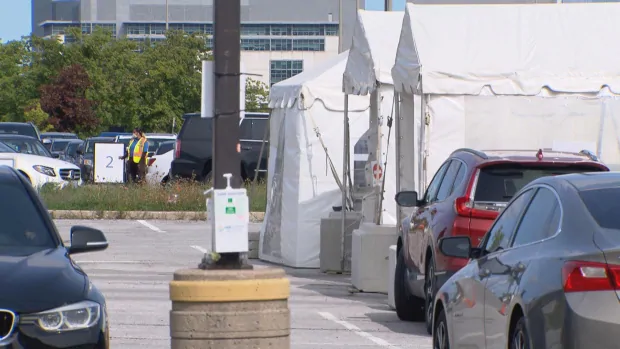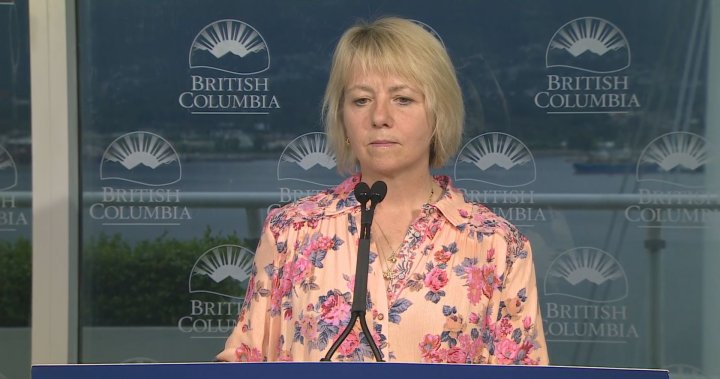While health officials and even Brampton’s mayor are sounding the alarm over the city’s 9.6 per cent test positivity rate, local businesses are calling for Stage 2 restrictions to be lifted.
“We are in the midst of a second wave in the region of Peel, a lot of it being driven in the city of Brampton with increasing case rises,” said Peel Region’s medical officer of health Dr. Lawrence Loh.
But Loh says the change in testing criteria at the beginning of October had resulted in decreased volumes in testing.
He told CBC Toronto that the modified Stage 2 in the Peel region may have come to effect “just in time” for residents to reduce contacts and interactions between people.
At 9.6 per cent, this week’s Peel Health surveillance report shows an increase of 1.5 per cent over last week, but experts say if the positivity rate is five per cent, transmission rates are considered under control.
Brampton Mayor Patrick Brown says the city has one of the highest percentages of essential workers which contributes to the high case counts the city is seeing.
“We have a greater number of essential workers. We have 11,000 people working in transportation logistics, 8,500 working in food processing,” Brown said.
On Saturday, Public Health Ontario reported 282 new COVID-19 cases in Peel, a record high for the region.
The 28-day period for modified Stage 2 restrictions is expected to end Nov. 6 but on Friday, Ontario Premier Doug Ford announced that a plan to ease COVID-19 restrictions in the province’s hot spots is in the making.
Restaurants among businesses ‘unfairly treated’
On Tuesday, Mississauga’s Board of Trade (MBOT) released a letter calling on Ford to lift the modified Stage 2 restrictions in the region following the end of the 28-day period and put forth suggestions for businesses moving forward.
“Mr. Premier, it is imperative that Ontario allow restaurants, bars, fitness centres and other indoor facilities to open after the 28-day period is complete on November 6, 2020,” the letter reads.
“These businesses will not be able to survive without an opening of their indoor facilities particularly as we move into the colder weather.”
MEDIA RELEASE: Letter to Premier Ford – Re: Business Openings in the Region of Peel<a href=”https://t.co/qRcOkcPazU”>https://t.co/qRcOkcPazU</a> <a href=”https://t.co/kACcsRhZi4″>pic.twitter.com/kACcsRhZi4</a>
—@MBOTOntario
MBOT’s President and CEO David Wojcik says the letter was intended to explain to the premier that businesses in the community, including restaurants and fitness centers, were “unfairly treated.”
“Restaurants and banquet halls are suffering dramatically, they just came off of a shutdown and now they’re into another one and the thought of that shutdown lasting any time longer will put a number of them right out of business,” Wojcik told CBC Toronto.
He says businesses that have performed responsibly and abided by restrictions must be able to reopen.
“What we’re asking the province to do is to move back to Stage 3,” Wojcik said. “If there needs to be some modifications to how restaurants operate inside, then the restaurants are willing to do that.”
Loh said while he understands the toll of the restrictions on many businesses, moving forward with reopening will call for many precautions.
“If there is a desire to modify stage two to reopen businesses, there needs to be some other form of restriction that comes down,” he said.

Jason Rosso, operating partner and general manager of J. Red and CO Food and Drink in Brampton, says he is doing everything he can to keep the restaurant afloat and would like to reopen next week.
Rosso said his restaurant which can seat up to 268 people was closed for the first four months at the beginning of the pandemic but with modified Stage 2, it is only offering takeout and food delivery during this period.
“I don’t necessarily feel that we’re unfairly targeted, but I do feel that maybe it’s not the best decision to shut down restaurants per se,” Rosso said.
The restaurant has been open for six years, but as a result of the pandemic, only four staff members out of 35 are currently employed.
“It’s been really tough. We’re only operating at about 37 to 40 per cent of our previous revenues, so it’s pretty low,” Rosso told CBC Toronto.
“I really would like to open with whatever stipulations I guess we have to open,” he said. “But I’m not super optimistic about it unfortunately.”
For restaurants and gyms, Brown says the public health data doesn’t support closing them in the Peel region.
“We didn’t have a single restaurant outbreak in Brampton,” Brown said. “We didn’t have any transmission of COVID-19 in these settings.”
Brown told CBC Toronto he is asking for decisions to be data-driven, noting that banquet halls were among businesses rightfully closed because of reported outbreaks.
Ministry to continue closely monitoring hot-spots
A spokesperson for the Ministry of Health says it will continue to monitor neighbourhoods in Brampton given the high positivity rate.
“While the data in Brampton and in other cities across Ontario is concerning, we continue to review trends from a range of criteria on an ongoing basis,” David Jensen said in an email to CBC Toronto.
Jensen said the criteria includes COVID-19 spread and containment, public health capacity to conduct rapid case and contact management, the type and setting of outbreaks, incidence tracking, increases in hospitalization and ICU admission and testing capacity.
“The ministry is closely monitoring areas of the province with high positivity rates and lower per capita rates of testing, which includes several communities in Brampton,” Jensen said.

Devoted web advocate. Bacon scholar. Internet lover. Passionate twitteraholic. Unable to type with boxing gloves on. Lifelong beer fanatic.





